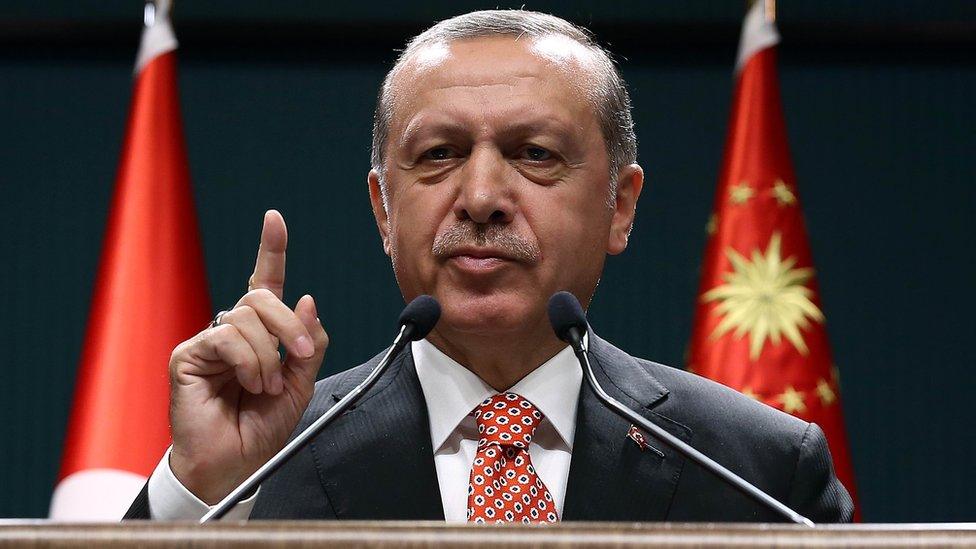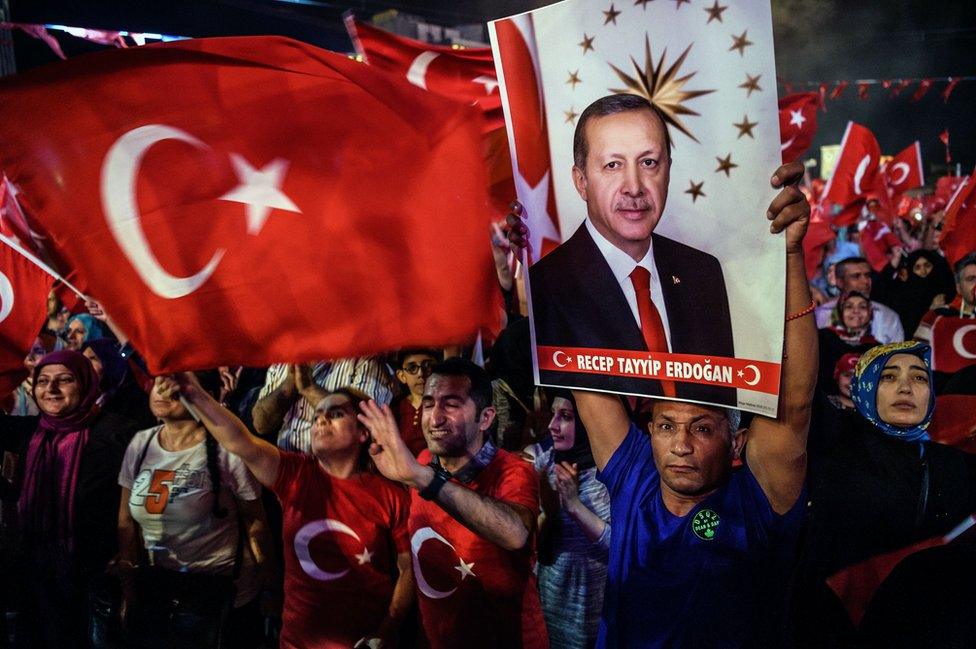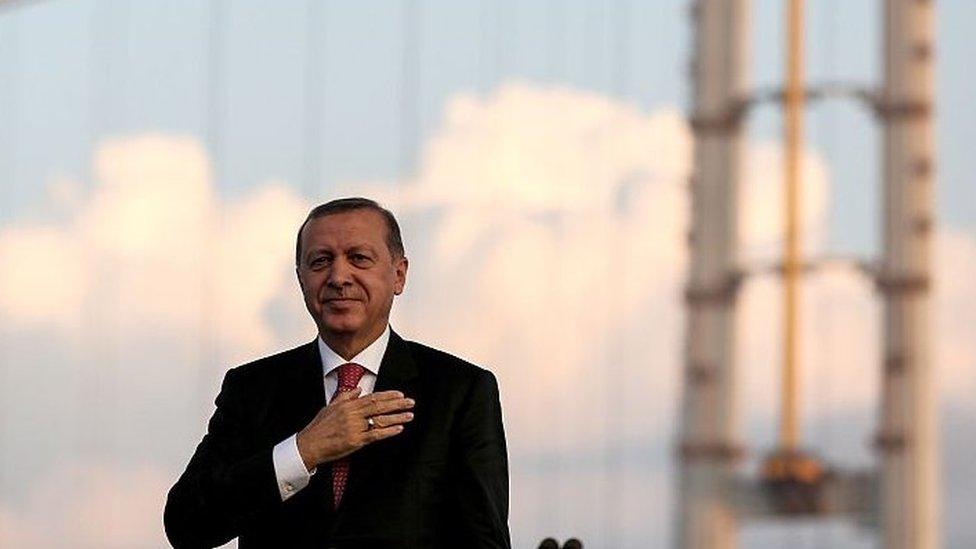Turkey's Erdogan criticises EU over Syria refugee deal
- Published

Mr Erdogan is seeking to boost his presidential powers
Turkish President Recep Tayyip Erdogan says the EU has not been "sincere" over an aid deal with Turkey to contain the influx of refugees from Syria.
There has been concern about the EU-Turkey deal, clinched in March, since Turkey was thrown into turmoil by a coup attempt on 15 July.
"The European leaders are not sincere," Mr Erdogan complained in an interview with German ARD television.
Of the €3bn (£2.5bn) pledged, the EU has paid a token €1m-€2m, he said.
Turkey is hosting about 2.7 million Syrian refugees and Mr Erdogan said the cost to Turkey so far had been nearly $12bn (€11bn; £9bn).
"Turkey stands by its commitment with regard to refugees," Mr Erdogan said.
Before the March deal, external, Greece was overwhelmed by the challenge of housing migrants and refugees arriving by boat from Turkey.
But since the deal was struck the numbers crossing the Aegean from Turkey to Greece have dropped dramatically.
Turkey is taking back Syrians and other migrants intercepted off the Greek islands.

Thousands rallied to denounce the coup plotters in Istanbul on Saturday
Russia rapprochement
Under the deal, the EU also pledged visa-free travel for Turks to the Schengen zone - the free movement area covering most of Europe - and a new impetus in Turkey's EU membership negotiations.
"We are sticking to our promise. But have the Europeans kept their promise?" Mr Erdogan asked, referring to the visa-free travel agreement.
In Moscow, there was progress towards improving Russian-Turkish ties on Tuesday, after months of bitter tension over the Syrian conflict.
Russian Deputy Prime Minister Arkady Dvorkovich and his Turkish counterpart Mehmet Simsek discussed resuming economic ties, especially an easing of Russian trade sanctions.
Mr Erdogan is expected to meet Russian President Vladimir Putin in St Petersburg on 9 August, Mr Simsek said. It will be their first meeting since Turkey downed a Russian Su-24 military jet on the Syria-Turkey border last November.

Turkey's failed coup

Death penalty dispute
The possibility of Turkey reintroducing the death penalty, to punish alleged plotters who tried to topple Mr Erdogan, has cast fresh doubt over Turkey's bid to join the EU.
Since the failed coup the Turkish authorities have suspended more than 45,000 civil servants, in a sweeping purge of state institutions.
Mr Erdogan has accused followers of a US-based Muslim cleric, Fethullah Gulen, of subverting the state. Mr Gulen has denied any involvement.
On Monday, European Commission President Jean-Claude Juncker said Turkey's EU accession talks would stop immediately if Turkey reintroduced the death penalty.
"Only in Europe is there no death penalty. Elsewhere it exists all over the place," Mr Erdogan told ARD.
He said he had no authority to restore it by himself, but he had a duty to listen to the Turkish people who, he said, wanted it restored.
"Therefore a request [for the death penalty] must be put before parliament," he said.
Turkey is a member of the 47-nation Council of Europe, which bars members from executing prisoners.
- Published24 March
